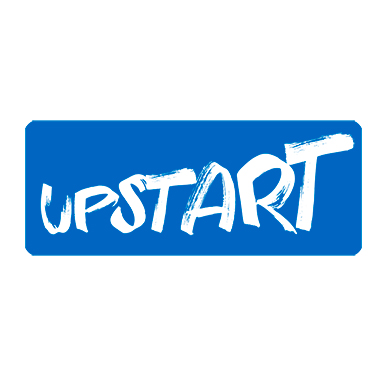15 Ways to Reimagine Education
1. Raise the School Starting Age.

Launched in 2013, Too Much Too Soon is a campaign led by the Save Childhood Movement (or “Flourish” Movement).

It raises awareness of the fact that children in the UK start formal learning much earlier than most other countries, that the value of their creative and expressive play is being steadily undermined, and that they are being exposed to a range of developmentally inappropriate pressures that are damaging to their long-term health and wellbeing.
This initiative provided evidence to show that there is no clear scientific research to support such an early start, but a great deal to suggest that it may be detrimental not only to children’s wellbeing but also to their learning dispositions and later academic achievement.

A similar campaign, Upstart is calling for a kindergarten stage to be incorporated into the Scottish education system. They state:
“International evidence shows that children under the age of seven benefit from an educational approach that supports their all-round physical, emotional, social and cognitive development, rather than pushing them towards early academic achievement.
In the long run a kindergarten stage enhances academic results. There’s no educational advantage to an early start. On the other hand, an early start causes problems for many children.
A kindergarten stage would offer opportunities for children to play (especially outdoors). Upstart say that time and space for play is vital for physical and mental health, and that during the first seven years, children’s own self-directed play underpins the development of:
- Physical health, including bodily control and coordination and physical self-confidence.
- Personal qualities, including creativity, resilience, self-control and problem-solving skills.
- Social skills such as getting along with other children, communication skills and understanding of the importance of rules in working collaboratively.
- Cognitive capacities like the use of language to explore and express ideas, and ‘common-sense understanding’ of the world and how it works, which underpins mathematical and scientific abilities.
Upstart has a wealth of information and research to back up these statements on their website and you can find out more in the film below.
Chair of Upstart, Sue Palmer, has also edited a book, ‘Play is the Way’ about the campaign’s aims:
The Struggle of Summer Borns

Another campaign, known as The Campaign for Flexible School Admissions for Summer Born Children, or “Summer Born Campaign” has been launched by parents, carers and professionals who believe that a summer born child should be allowed to start primary school in Reception class, aged five instead of aged four.
They state that a large body of research and evidence supports the choice of delaying a child’s start into school, and they believe that flexibility is needed to allow those who are not ready to wait a further year:
“Fundamentally, we believe summer born children should be allowed the lawful opportunity to thrive, and not merely cope, at school.”
One such study, published in 2019 in JAMA Pediatrics, found that the youngest children in the academic school year are 30% more likely to develop mental health problems. Scientists used electronic GP records for a sample of one million school-aged children in the UK and found children born in the last three months of the school year were 30% more likely to develop depression compared to those born in the first three months.
This ground-breaking paper, entitled “Association of Relative Age in the School Year with Diagnosis of Intellectual Disability, Attention-Deficit/Hyperactivity Disorder, and Depression“, was led by the London School of Hygiene & Tropical Medicine.
Another 2019 study entitled “Inequalities in the Experience of Early Education in England“, led by the London School of Economics and Political Sciences found that summer borns are less likely to have friends when they start school. Researchers said:
“This is of particular concern since summer-born children are known to be at a disadvantage through their educational careers, both in terms of attainment and socially and emotionally”.
The lead campaigners of the Summer Born Campaign group published a report in 2014 entitled, “Compulsory School Age in England has been Lowered to 4 through an Unfair and Unlawful Summer Born Admissions Process“. It contains:
- Examples of unlawful and unfair policies and practices.
- Evidence of inconsistency, contradiction and errors in Department for Education publications and Ministers’ statements.
- Glossary of legislation that relates to school admissions.
- Detailed Admissions history.
- Examples of parents’ experiences.
You can read the full Summer Born report in our Research section.
School Turns Off Children’s Natural Desire to Learn
Children naturally love to learn. They are born curious and for their first four years of life – through exploration and play, without any instruction – they learn a vast amount of skills and information about their world, from walking, climbing, language, to socialising.
“Nature does not turn off this enormous desire and capacity to learn when children turn five or six. We turn it off with our system of schooling. The biggest and most enduring lesson of school is that learning is work, to be avoided when possible.”
Dr Peter Gray, Free to Learn
Young Children are Not Biologically Ready for Formal Learning
For example, they don’t have the fine motor skills needed for writing. There are good reasons why children gravitate towards play dough, finger painting, building blocks, threading beads, balancing on logs, and many other play activities before they become interested in handwriting.
Children experience progressive development of their hands and require development of postural control, grasp, fine motor skills, upper and core body strength, proprioceptor control and visual motor integration prior to (and during) the development of writing skills (Neurochild Diversity, 2019).
Ruth Swailes, a School Improvement Advisor and Education Consultant, recently compared an x-ray of a 7 year old’s hand with that of a younger child from the Early Years Foundation Stage (EYFS, 0-5 years). She observes:
“An x-ray of a developed hand (around the age of 7) compared to an EYFS hand is pretty informative. It’s not just the size of the child’s hand which changes. The younger child has cartilage which will eventually become bone through the process of endochronal ossification. This occurs around the ages of 6-8yrs.
The physiology of young children’s hands needs to be taken into consideration. There’s a reason we don’t dress babies in suits. There are lots of research papers on Early Mark Making and Writing. The dangers of introducing tripod grip before children are physically ready are well documented.”
Ruth Swailes, a School Improvement Advisor and Education Consultant
Academic Training in Young Children Causes Long-Term Harm – New Evidence
In 2022, Dr Peter Gray revealed in an article for Psychology Today, the results of a study showing that academic training in young children, while improving test scores in the short term, causes long-term harm. Speaking of the first well-controlled long-term study that has ever been conducted of a state-wide publicly supported preschool program in the United States – the “Tennessee Pre-K Program” (Durkin et al., 2022), he said,
“If this study doesn’t put the nail in the coffin of academic training to little children, it’s hard to imagine what will!”
The study followed children who had been part of a “high quality” preschool programme. Gray says that, based on the prejudice that early academic training would give the children a boost for their subsequent schooling, the programme was heavy on academics. It included a minimum of 5.5 hours of instructional time per day, five days per week (for four year olds). Gray summarises the results as follows:
“The major findings of the study are that this expensive, carefully planned pre-K program caused, by 6th grade, reduced performance on all academic achievement tests, a sharp increase in learning disorders, and much more rule violation and behavioral offenses than occurred in the control group.”
Campaigning for Change
Visit our Campaigns page to read more about the campaigns which aim to raise school starting age.
Further Reading on Why Progressive Alternatives are Needed
Please visit 15 Ways to Reimagine Education

